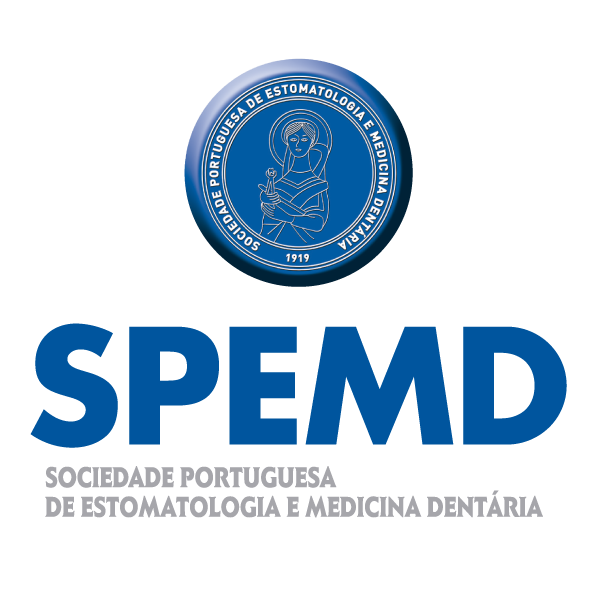
Revista Portuguesa de Estomatologia, Medicina Dentária e Cirurgia Maxilofacial
Revista Portuguesa de Estomatologia Medicina Dentária e Cirurgia Maxilofacial | 2021 | 62 (4) | Page(s) 229-236
Original research
Oral health-related knowledge and practices among a cohort of pregnant Portuguese women
Conhecimentos e práticas relacionadas à saúde bucal em uma coorte de gestantes portuguesas
a University of Coimbra, Faculty of Medicine, Dentistry Department, Institute of Paediatric Dentistry and Preventive Dentistry (Coimbra, Portugal)
b University of Coimbra, Faculty of Medicine, Center for Innovation and Research in Oral Sciences (Coimbra, Portugal)
Margarida Esteves - margarida.esteves022@gmail.com
Article Info
Rev Port Estomatol Med Dent Cir Maxilofac
Volume - 62
Issue - 4
Original research
Pages - 229-236
Go to Volume
Article History
Received on 20/11/2020
Accepted on 18/11/2021
Available Online on 24/12/2021
Keywords
Abstract
Objectives: To assess the level of knowledge and attitudes regarding prenatal and infant oral health in a sample of pregnant women from Coimbra, Portugal. Methods: A self-applied questionnaire was administered to randomly selected pregnant women who attended prenatal check-ups at two public health institutions in Coimbra. Collected data included sociodemographic information, oral health knowledge and practices in pregnancy, and knowledge on oral health in children. All ethical requirements were met. Statistical analysis was conducted using descriptive and inferential methods. Variables were tested for independence using a chi-square test with a 95% confidence interval. Results: A total of 120 women enrolled in the study. Although 68.9% of participants brushed their teeth twice daily, 36.4% reported not using floss, with a statistically significant association with age (p=0.004). Half of the respondents had not attended a dental appointment before pregnancy, and 59.2% believed pregnancy could be harmful to oral health. Findings showed limited knowledge of the possible consequences of gingivitis and periodontitis to the course of pregnancy and the importance of diet in oral health. Moreover, a low level of understanding was noted regarding the existence and prevention of early childhood caries. Conclusions: Oral health-related knowledge and practices of surveyed women were in general deficient. Considering pregnancy is a period of particular interest for acquiring knowledge and good oral health practices, which are decisive for both the expectant mother and the child, our results highlight an urgent need to implement prenatal oral health care programs in this study population.
Resumo
Objetivos: Avaliar os conhecimentos e atitudes relativos à saúde oral na gravidez e na infância de uma amostra de grávidas de Coimbra, Portugal. Métodos: Um questionário auto-aplicável foi administrado a uma amostra aleatória de grávidas em seguimento pré-natal em duas instituições de saúde públicas de Coimbra. Colheram- se dados sociodemográficos e referentes aos conhecimentos e práticas de saúde oral na gravidez e relativos ao bebé. Todos os requisitos éticos foram cumpridos. Procedeu-se a análise estatística descritiva e inferencial dos resultados. Verificou-se a independência das variáveis através do teste de qui-quadrado para um intervalo de confiança de 95%. Resultados: A amostra incluiu 120 grávidas. Apesar de 68.9% das participantes ter revelado realizar escovagem bi-diária, 36.4% não usava fio dentário, verificando-se uma associação estatisticamente significativa deste hábito com a idade (p=0.004). Metade das inquiridas não visitou o médico dentista antes da gravidez e 59.2% considerava que a gravidez era potencialmente danosa para a saúde oral. Foram evidenciadas algumas lacunas no conhecimento relativamente às possíveis consequências de gengivite ou periodontite no desfecho da gravidez e acerca da importância da dieta para a saúde oral. Destacou-se também falta de informação no que respeita à cárie precoce de infância e à sua prevenção. Conclusões: Em geral, as grávidas apresentaram conhecimentos e comportamentos de saúde oral insuficientes. Atendendo a que a gravidez constitui uma fase de particular interesse para a aquisição de conhecimentos e modificações comportamentais decisivos para a gestante e bebé, os presentes resultados suportam a necessidade de implementar programas de saúde oral pré-natal nesta população.
